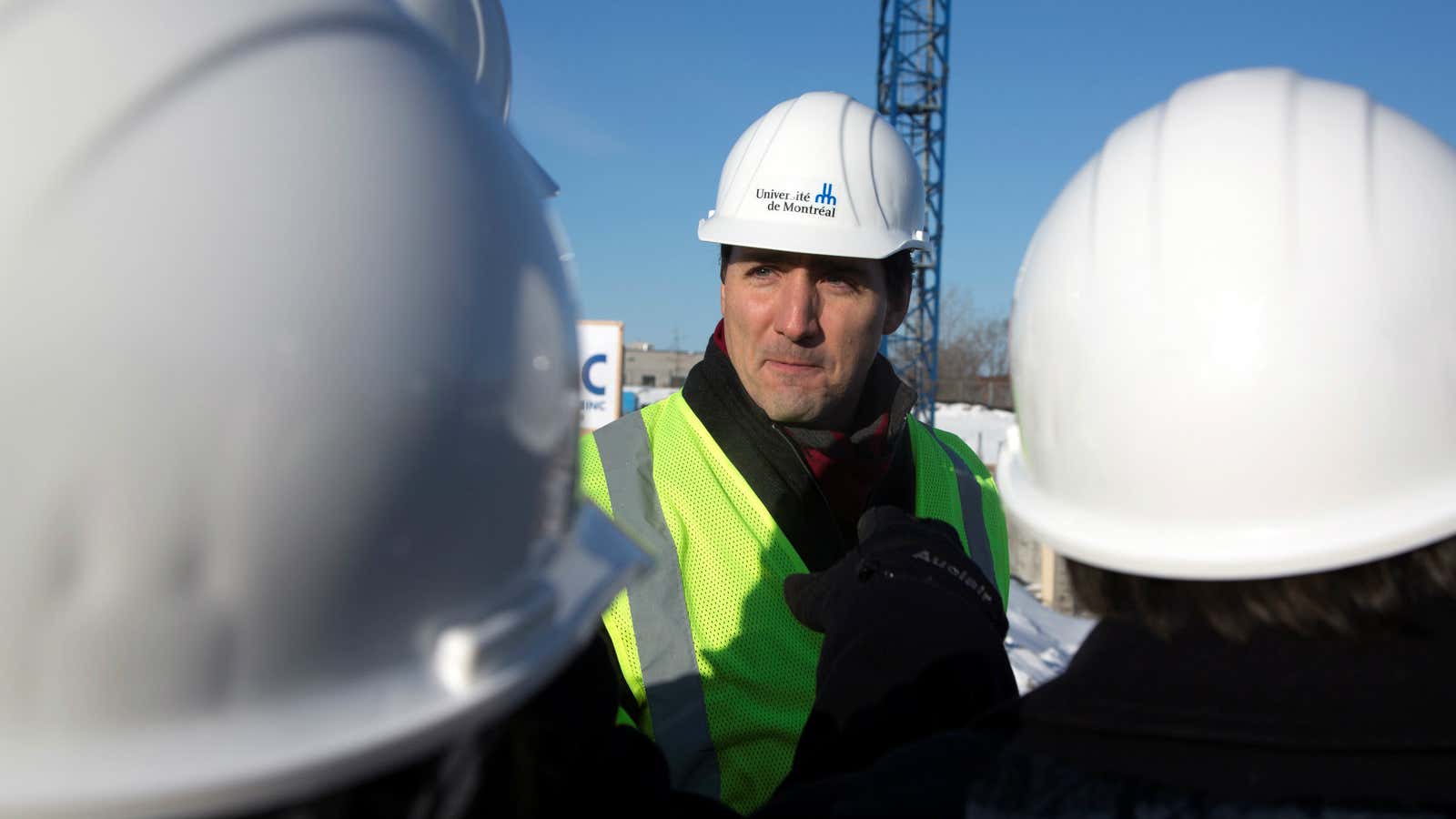Borrowers buying homes with bigger and bigger mortgages. Specialist lenders taking business from banks by offering more aggressive loan terms. Analysts claiming there is nothing to worry about.
Sound familiar?
The real estate market in Canada is starting to share some similarities with the US before its subprime-fueled housing bubble burst. For one thing, mortgage debt in Canada is close to 70% of GDP, not far from the peak in the US before it all went wrong:
Canada’s central bank recently warned that increasing household indebtedness is the country’s major financial vulnerability. Thanks to easy credit and foreign demand, property prices in Canada have been skyrocketing—the average home price is now rising at a 13% annual pace, not far off the highest rate recorded before the global financial crisis. As a result, the ranks of Canadian mortgage borrowers with high loan-to-income ratios has jumped in recent years:
So, is Canada headed for a crash?
Banking regulation in Canada has traditionally been stricter than in the US, and recent changes to mortgage rules have put even tougher limits on down payments, loan-to-value ratios, and the like. Still, the central bank is worried—but not too worried (pdf)—about lightly regulated mortgage finance specialists taking market share from banks.
Benjamin Tal, an economist at the Canadian Imperial Bank of Commerce, doesn’t think so (pdf). He claims that the US housing market cratered not because debt levels were high, but because the US built up ”lousy” debt, whereas the composition of Canadian debt is sound. Indeed, less than 1% of mortgages are three months or more overdue (pdf). “There’s no real estate bubble, except perhaps in Vancouver,” notes Marc Pinsonneault of the National Bank of Canada.
Canadian homeowners will hope these assessments prove more accurate than the ones on the other side of the border.
